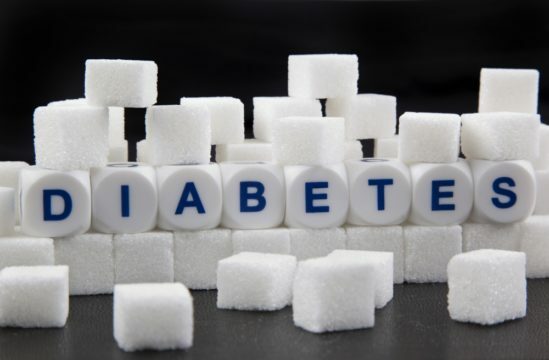Diabetes mellitus itself is a fairly dangerous disease. This is due to possible complications that occur in the absence of adequate treatment. With type 1 diabetes, daily insulin injections are provided, which is why it is called insulin-dependent. In addition to the mandatory prescription of medications, the patient must follow certain rules of nutrition, as well as regular exercise.

In a case where the patient neglects the basic principles of treatment and appointments of a doctor, the risk of complications increases. Especially dangerous is the fact that diabetes affects almost all systems of the human body. Accordingly, complications can appear against the backdrop of any of them.
Causes of
The development of diabetes of any type is associated with the presence of a variety of factors. One of the most common is heredity. Also, various types of viral infections and injuries can become the causes. Because of them, the mechanism of the pathological immune response can be triggered, as a result of which pancreatic cells begin to break down. They are responsible in the body for the production of insulin. Its lack and leads to the fact that the level of glucose in the blood begins to increase.
The disease usually develops before the age of 20 years. The first type of treatment is not amenable, so it is very important to take all the prescribed medicines on time. Unfortunately, this will have to be done before the end of life. It is necessary to stop the symptoms of the disease with the help of insulin injections.
The cause of the development of complications of type 1 diabetes is the fact that in an organism unable to independently process glucose, exhaustion of various organs, including the brain, begins. This happens even despite the amount of food consumed. If you do not help the artificial introduction of insulin, then the body will begin to fill up the inadequate amount of energy with the help of fat metabolism. And this is already able to lead to the formation of ketones, which have a harmful and damaging effect on the brain, as a result of which a person falls into a coma.
Description of complications
The occurrence of complications is due to both the lack of treatment and the duration of the disease itself. Unfortunately, the fact that the body does not produce insulin on its own for 10-15 years can not but affect the state of individual organs.

So, often with diabetes increases the risk of increasing blood pressure, increasing the cholesterol. In men due to impaired circulation of blood vessels, impotence may develop. And in women, this disease causes difficulties in planning pregnancy. If it does, the control over the condition of both the woman and the fetus is particularly difficult.
In general, all complications are divided into the following types: acute, late and chronic.
Acute
This group of complications is the greatest danger to a person's condition. They develop usually in a fairly short time: from a couple of hours to several days. In such cases, it is much more difficult to provide timely medical assistance, and the consequences of failing to do so go down to a lethal outcome. That is why it is important, in time to notice the primary symptoms of the development of a disease caused by diabetes. It is believed that if the help was not provided within two hours after the appearance of primary symptoms, then it becomes almost impossible to help the patient.
Among the acute complications to which patients with type 1 diabetes are exposed, are:
- ketoacidosis;
This condition is characterized by a sharp disruption of the functionality of the main organs in the human body. It manifests itself in the loss of consciousness. Only patients with type 1 diabetes are inclined to this. The cause of ketoacidosis is the accumulation in the blood of dangerous ketone bodies, i.e., toxic compounds that appear due to the metabolism in the body of excessive amounts of fat. This can contribute to non-compliance with the basic rules of nutrition, injuries, surgery.
- hypoglycaemia;
This complication occurs against the background of a sharp change in the level of sugar in the blood. Such a phenomenon for a small amount of time can cause a loss of consciousness, at which there will be a lack of pupillary response to light, increased sweating, and the occurrence of seizures. End all of this can even coma. The causes of hypoglycemia are the reception of strong alcoholic beverages, increased physical activity on the body, as well as an overdose in the intake of medications. This complication can occur in patients with any type of diabetes mellitus.

- lactocidotic coma;
A similar condition develops on the background of cardiovascular, renal and hepatic insufficiency. Symptoms are blurred consciousness, impaired breathing, a sharp drop in blood pressure and a lack of urination. This kind of coma is caused by the accumulation of lactic acid in the blood. Affected by this condition, as a rule, patients older than 50 years of any type of diabetes.
Late
This group is composed of conditions that for several years gradually worsen the patient's condition. Late complications of type 1 diabetes mellitus can not always be quenched, even if all the recommendations for treatment are met. It remains only in time to notice their symptoms and seek help. Thus, they include:
- Retinopathy is a complication, which in patients with the first type of diabetes occurs only 15-20 years after the manifestation of the disease. It is a retinal lesion that can lead to its detachment, and then a complete loss of vision.
- Angiopathy is a fragility of blood vessels, which can lead to thrombosis and atherosclerosis. It usually develops over a period of one year.
- Polyneuropathy is a condition in which the sensitivity in the limbs of pain and heat disappears. Symptoms begin with numbness and burning in the hands and feet. The phenomenon intensifies at night.
- Diabetic foot - occurrence on the lower extremities of a diabetic of ulcers, abscesses and dead areas. A complication that can be avoided, with special attention to leg hygiene, as well as the correct selection of shoes( comfortable, not rubbing anywhere) and socks( without compressive rubber bands).
Chronic
As mentioned above, the course of the disease over a long period of time can damage many vital organs. Pathological changes in blood composition, which is typical for diabetes, can lead to the defeat of the following organs and systems:
- kidney: against the background of the destructive effect of diabetes, chronic insufficiency develops over time;
- skin: due to insufficient blood supply, a diabetic patient has a risk of trophic ulcers, especially in the lower limbs;
- vessels: Diabetes causes vascular permeability, this phenomenon causes deficiency of oxygen and other nutrients, which increases the risk of heart attack or other heart diseases;
- Nervous System: Nerve damage causes numbness of limbs and permanent weakness in them, which can lead to chronic pain.
Prevention of
It is almost impossible to prevent the onset of type 1 diabetes, since the factors that influence this are usually not monitored. To prevent the development of many complications is more real. The main thing to do is follow the prescriptions of the doctor in charge. The main ones are:
- daily injections of insulin;
- is a regular balanced food that takes into account the limitations in the products;
- regular moderate exercise;
- constant monitoring of the sugar level( using a personal glucometer);
- control the level of sugar in the urine( as directed by a doctor).
Thus, following certain rules, many dangerous complications can be avoided, including for life.




